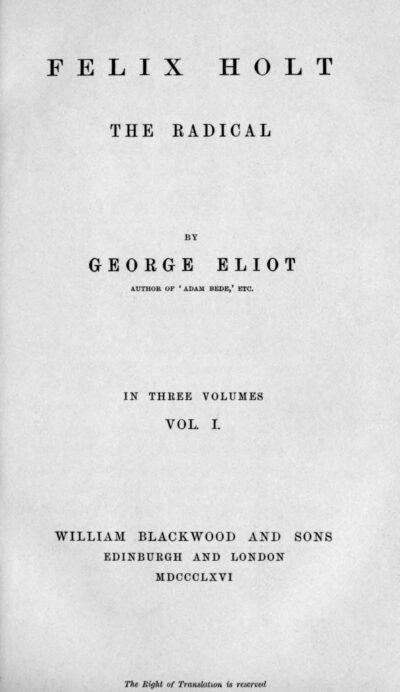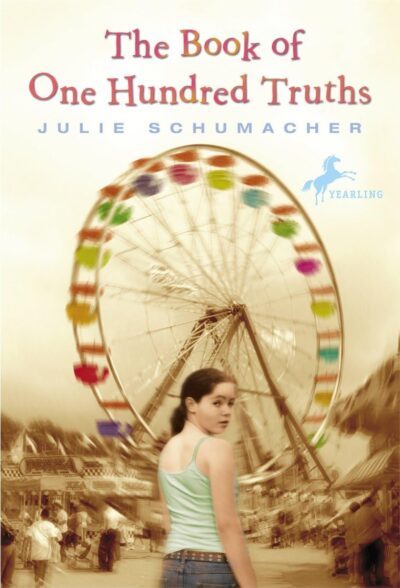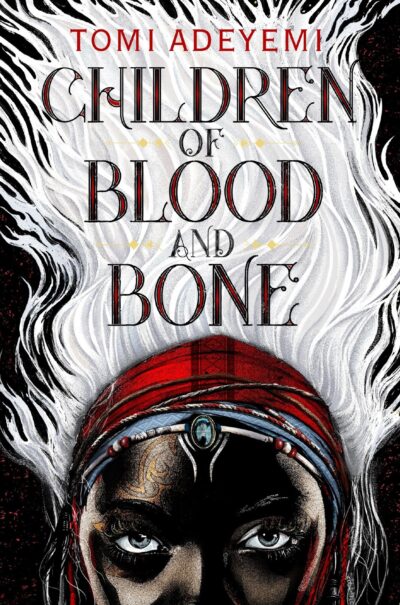Synopsis
Where the Crawdads Sing by Delia Owens follows Kya throughout her life. It focuses on the murder of Chase Andrews, a well to do man in the town, and the suspicion that falls on Kya. Kya lives on her own in the marsh land after her family abandons her, and grows to be recognized as the Marsh Girl in town.
My Experience
While this admittedly does sound like something I would read, I’ve never been particularly drawn to it. It’s been incredibly popular for a long time, and even experienced a resurgence when the movie came out in 2022. Despite this, I’ve never wanted to read the novel before, and so I took this assignment as a chance to finally see what all the hype was about.
I was surprised by how much I genuinely enjoyed this book. I was invested in the characters and the trial. The last hundred or so pages of the book flew by as the trial reaches the climax and the verdict is decided. There is no panic like having very few pages left and too much to wrap up, but the plot moved throughout the book and I love fast paced books. I also enjoyed the fact that this novel jumps around the timeline, going back and forth between Kya’s childhood and the present, starting from when Chase was found up through the trial and the end of the story. Each previous chapter allows the audience to more fully understand Kya and her character, letting the audience truly get a feel for the marsh.
Alienation
Meryl Lynn, dahliln’, don’t go near that girl, ya hear me. She’s dirty.
I wish those people wouldn’t come to town. Look at her. Filthy. Plumb nasty. There’s that stomach flu goin’ around and I just know for a fact it came in with them. Last year they brought in that case of the measles, and that’s serious.
-Owens 66
Kya has been alienated for her entire life. Her mom left when she was young, and was then followed by all of her siblings, one after the other, until it is just her and her dad left, but even he leaves. By the time she is ten, Kya is living entirely on her own. Kya has been alienated from everyone else, left on her own to teach herself how to survive and grow.
Growing up, Kya is alienated from the other people in Barkley Cove. They call her the “Marsh Girl”, and on the rare occasions when she makes her way into town, she finds herself ostracized. There is an interaction in which a woman tells her toddler daughter not to interact with Kya because she’s “dirty” (Owens 66). The only business that Kya learns how to make is with Jumpin’, a kind older black man in town.
The town treats her more like a cryptid than a girl. With no guidance from her mom or older siblings and an absent father, Kya doesn’t go to school. One day, social services arrives and informs her that she has to go to school, where she is humiliated because she doesn’t know how to spell ‘dog’ (Owens 28). After this interaction, she never goes back to school, leading to even further alienation. For a time, she doesn’t mind and finds her own way in life, embracing her isolated experience.
The only person who sees Kya as anything other than an anomaly or as something more than the Marsh Girl is Tate, a boy who was friends with her brother and who enters a romantic relationship with Kya. Even the only other boy she was ever in a relationship with, Chase, is only with her because he wants to be the one to take the Marsh Girl’s virginity. Tate inspires Kya to send in her drawings and write a book about marsh life using her specific knowledge and helps her to do the best she can in her life, including teaching her to read and meeting her where she’s at. There is a time in her life when he disappears (a whole thing that’s actually not his fault), but still, she begins to dislike Tate when she believes that he perceives her as the Marsh Girl and nothing more, but once she realizes that he loves Kya, not the Marsh Girl, she falls back in love with him.
Curiosity
Nothing like this has ever been published. I’m sure this is just the beginning for you.
-Owens 221
The novel is riddled with curiosity. Kya is curious about the marsh and about society. She teaches herself everything she needs to know to survive on her own, turning her into a curiosity for the town as well. They’re curious, albeit mostly hateful towards, the Marsh Girl. She is a curiosity because she has grown up on her own and no one ever sees her, but they all know about her.
Kya’s curiosity takes root in the marsh. She is interested in the birds in the area, in the marsh life, in the swamp. Her life’s joy isn’t in the trade that she makes or simple life she leads, but rather in the marsh itself. Tate has always been interested in Kya, but he’s especially curious about her interest in the marsh. He gives her the idea to publish her findings as a novel as a way to make money. Her curiosity is what funds her life – between the marsh books and the poetry she publishes under the pen name Amanda Hamilton, Kya is able to afford to live in the marsh.
Reading this book, I also felt a lot of curiosity. My curiosity was mainly about the murder and if Kya truly did commit it. There was plausibility either way, but I was also interested to see how the town would decide Kya’s fate, given the way they’d treated Kya up to the trial taking place. Kya’s fate is left to the town: the jury will decide if she is innocent or not, and if not, she will be put to death. The suspense in this book mainly stems from the not knowing – will the town continue on as they always have, or will they hear out the evidence that is laid before them that Kya did not commit the murder? I was also curious about what would happen with Tate – Kya is portrayed as a free spirit, someone who does not like to be tied down to or rely on anything other than the marsh. However, Tate was a constant presence in her life. He was there when she was young, he was her first love, and he was there for her throughout the trial, despite her initial refusal to see him. The pair ultimately wind up together and get their own sort of happy ending, but it was fun to follow them throughout the book to see what Kya (and Tate) would decide.
Generous Love
And each time time she came to his [Jumpin’s] wharf, she saw her book propped up in the tiny window for all to see. As a father would have shown it
-Owens 222
Tate’s devotion eventually convinced her that human love is more than the bizarre mating competitions of the marsh creatures, but life also taught her that ancient genes for survival still persist in some undesirable forms among the twists and turns of man’s genetic code
-Owens 363
Generous love is defined in our narrative technologies page as “loving someone for who they are, and not who we want them to be”. Tate has always shown generous love to Kya. He has loved her for herself for their entire relationship, and his love for her, his plea to the town to the town to see Kya as a woman and not as the Marsh Girl is incredibly helpful in her case. His words convince the town to see Kya for who she is: a woman who has been abandoned by everyone in her life, and was then abandoned and left to die by the town as well, instead of as who they want her to be: a Marsh Girl more myth than real woman.
Even in her time with Chase, Chase was never proud of Kya. He didn’t want to bring her home or into town with him because she was the Marsh Girl, and if she ever were to come with him, it is clear that he would want her to change. Tate has never cared that she’s the Marsh Girl, and gives up his dreams/changes his life to fit hers. He knows what she wants in life, and he accepts that about her, loving her all the same. He doesn’t ask her to change or love her in spite of the fact that she’s the Marsh Girl – he loves her because she’s the Marsh Girl.
Jumpin’ also exhibits generous love towards Kya. No one else would deal with the Marsh Girl, but Jumpin and his wife Mabel did everything they could to meet her where she was. She traded with them for money, and Jumpin and Mabel made sure she had new clothes when she needed them and kept up with her daily life. They knew that she would never leave the marsh, so they took care of her in the best way that they could.
Moral Omniscience
She knew the years of isolation had altered her behavior until she was different from others, but it wasn’t her fault she’d been alone
-Owens 363
Female fireflies draw in strange males with dishonest signals and eat them; mantis females devour their own mates. Female instincts, Kya thought, know how to deal with their lovers
-Owens 274
Within the book, there is also a sense of moral omniscience. At the end of the novel, it is revealed that Kya did in fact kill Chase. However, it is hard to say that she was objectively right or wrong. Chase used her for years, leading her on to think that they could actually be something when all he wanted was the “prize” of taking her virginity. He never brought her to town, never mentioned her to his friends, and made it clear that she had to change drastically, or she had no place in his life. Kya even finds out that he is engaged to another girl in the time he’s dating her. After she breaks it off with him, he shows up again and attempts to assault her. Kya is able to fight him off, but is overheard by two fishermen to have told him she would kill him if he ever came close to her again, saying “leave me alone, you bastard! You bother me again, I’ll kill ya!” (Owens 269).
So, there is all of that leading into the murder. Kya was supposed to be out of town at a meeting with her editors, and has no proof that she left her room. As far as anyone could prove, all of the evidence against her was circumstantial, such as the fibers from her hat being on Chase’s jacket. This is disproved because the fibers could have been there for up to five years, and Kya had recently been in a relationship with Chase, so the fibers could have come from any other time she saw him. What the audience knows for sure is that Kya came back under the cover of night to kill Chase. It is clear that she didn’t feel safe with him around prior to this due to his assault, and she knew that having hit him back and “won” he was likely to come after her again.
Kya also grew up in the marsh. She often says that she is like the animals in her activities. Her unconventional upbringing makes it hard to judge her for her actions. To us, murder is wrong and Kya shouldn’t have killed Chase, but to Kya, it’s not as wrong seeming. Animals kill each other when they are threatened. Kya was raised on her own in and essentially by the marsh. A lot of her behaviors are animalistic. Kya only leaves the marsh to trade with Jumpin, and has only left town once in her life: the meeting with her editor over the time Chase was murdered. The marsh is Kya and she is the marsh. Yes, murder is bad and you shouldn’t leave your retreat with your editor to kill your ex boyfriend, but Kya’s life and moral upringing was unconventional from beginning to end. With no one to look after her and teach her human nature or to make her feel safe at night, it’s easier to understand how she would think that she should kill Chase.
Kya has been failed by the community time and time again, left on her own to grow up and teach herself everything. All of Kya’s siblings leave following their mom’s departure, but none of them, not even her closest brother Jodie, take her with them. Jodie comes back at the end, but no time in the years in between did he come back for her. She was alone by the time she was about ten years old. Murder isn’t acceptable, but Kya’s life wasn’t acceptable either.
Where the Crawdads Sing was so much better than I was expecting it to be. From beginning to end, I was invested in the story and what the eventual resolution would be. The ending was a perfect fit for who Kya was and who Tate was.
Works Cited
Experiences Glossary – Story & The Brain. https://unewhavendh.org/story-and-the-brain/experiences-glossary/. Accessed 2 Feb. 2025.
Owens, Delia. Where the Crawdads Sing. New York, New York. G.P. Putnam’s Sons. 2018.
Technologies by Element of Narrative – Story & The Brain. https://unewhavendh.org/story-and-the-brain/technologies-by-element-of-narrative/. Accessed 2 Feb. 2025
Featured Image
Coastal Marsh Resiliency. Georgia Conservatory. All rights reserved.




